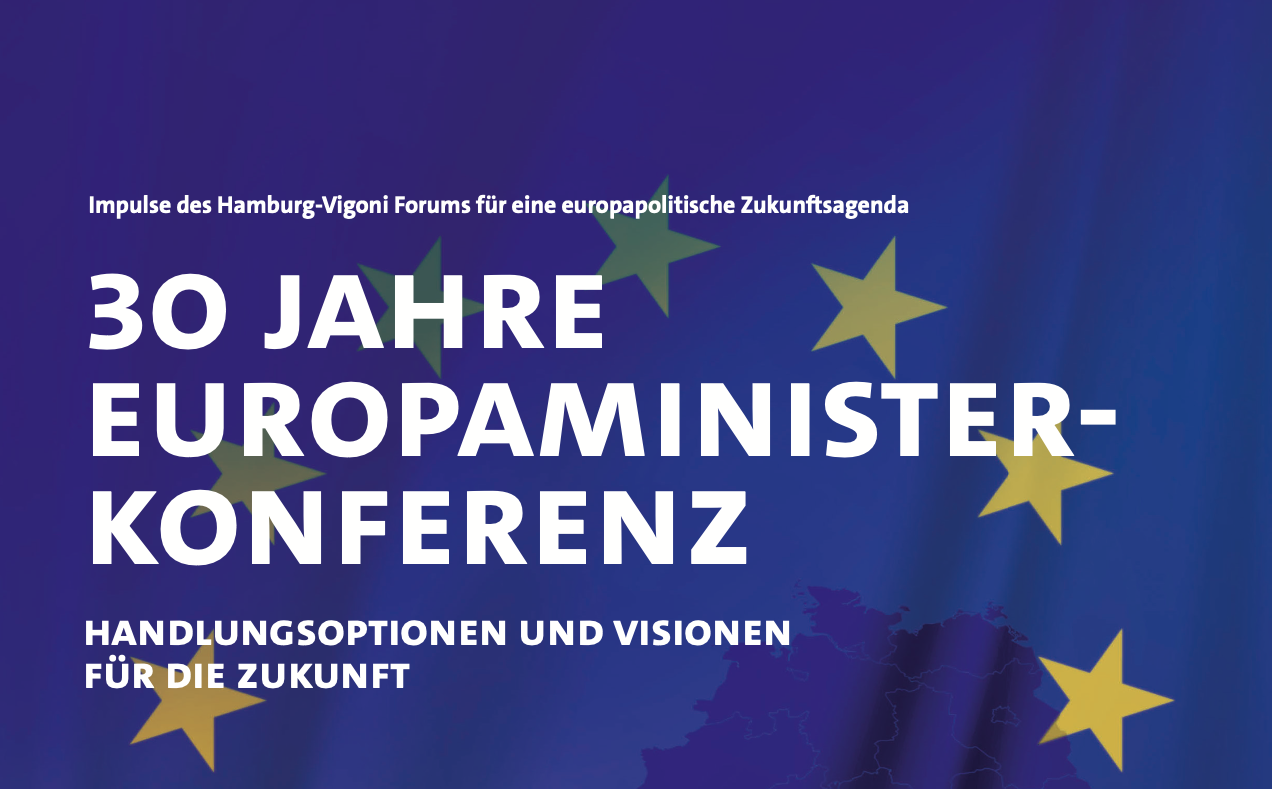30 Jahre Europaministerkonferenz – Handlungsoptionen und Visionen für die Zukunft

To mark the 30th anniversary of the European Ministerial Conference (EMK), the Hamburg-Vigoni Forum, in cooperation with the Jean Monnet Chair at Otto von Guericke University Magdeburg, has published the policy paper "30 Years of the European Ministerial Conference - Options for Action and Visions for the Future". The paper analyses the impact and work of the EMK over the last three decades. The key questions are: With what aim was the EMK founded, what European policy role has it played so far, does it fulfill its task profile and what potential can it use to make the EMK's founding concern, the promotion of the European idea, even more active and even more visible in the future?
This study focuses less on the details of day-to-day political work - as important as these are - and more on the major integration policy issues that the Chair (co-funded by the European Commission) and the Forum (organized by the University of Hamburg, the Institute for Peace Research and Security Policy, the Europa-Kolleg Hamburg and Villa Vigoni) are pursuing.
The study is thus embedded in the multi-year cooperation within the framework of the Hamburg-Vigoni Forum, which discusses the key issues of sovereignty, identity, and space from a long-term perspective and in continuous dialogue with politicians. For the German federal state, the federal states play a decisive role as a formative force in European policy. In the sense of "active subsidiarity", they can help to legitimize the integration project "bottom-up" and communicate it to the citizens.
The policy paper was published in German as the third issue of the series "Notes from the Hamburg-Vigoni Forum" :
"30 Jahre Europaministerkonferenz – Handlungsoptionen und Visionen für die Zukunft".
